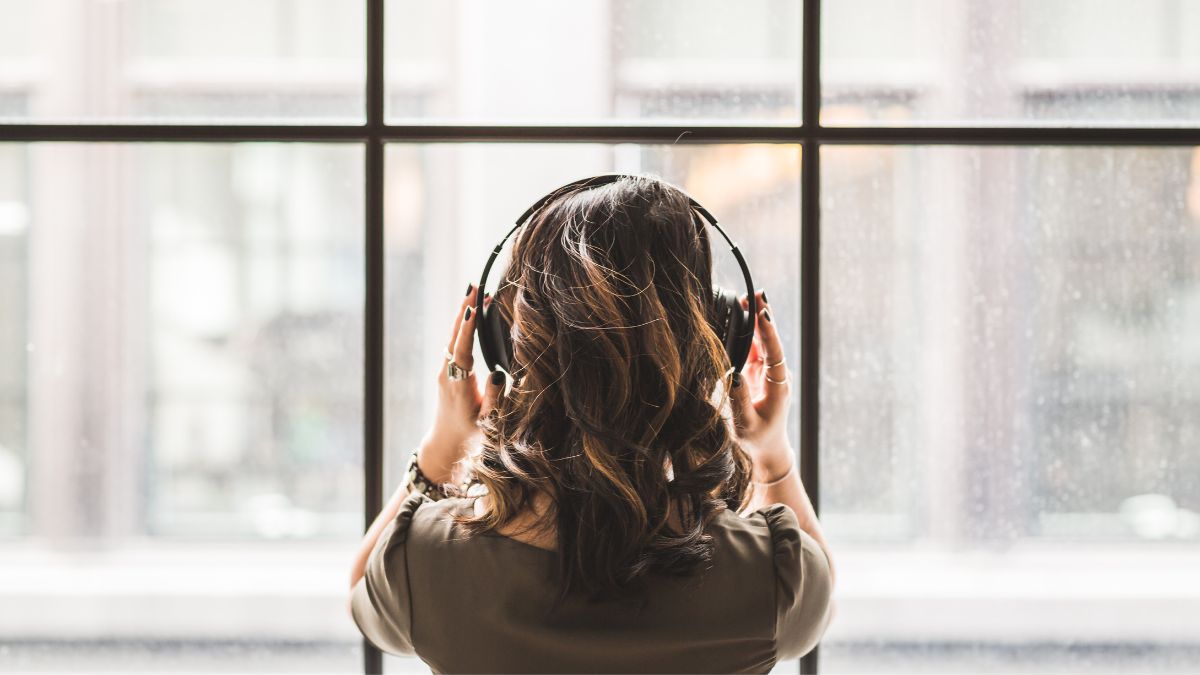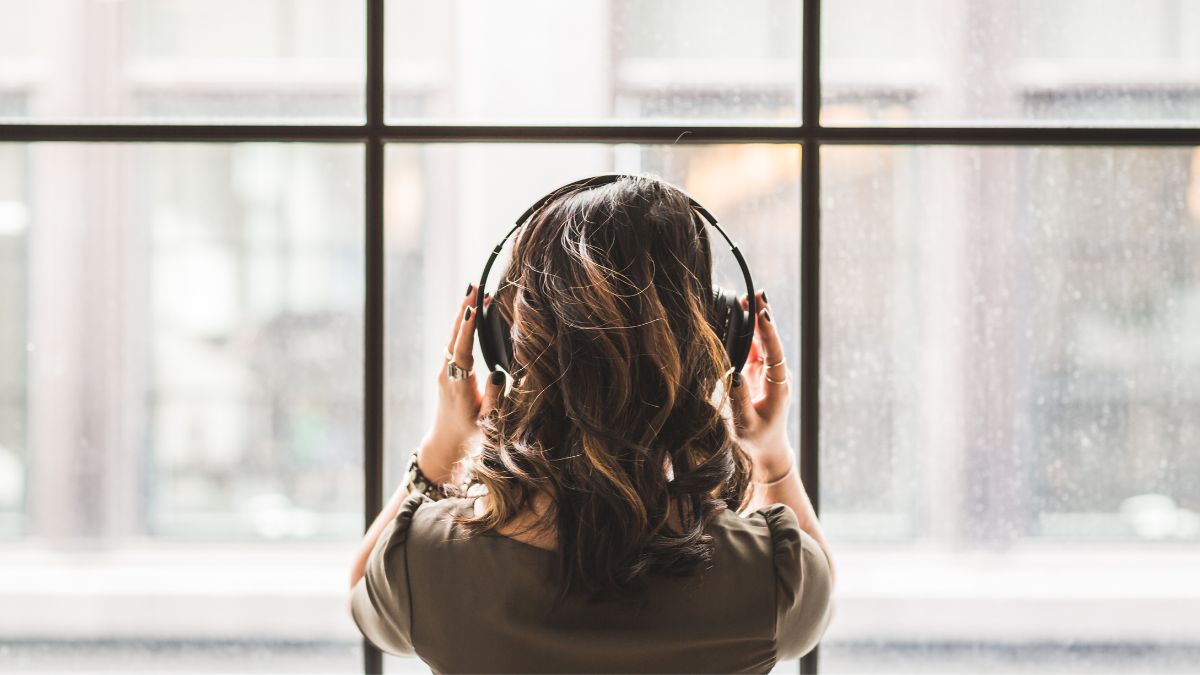Andy Summers & Reviews of The Clipse and The Deftones
This week Jim and Greg are joined by former Police guitarist, and now author, Andy Summers. They’ll also review new albums by hip hop duo The Clipse and rap-metal band The Deftones.

Music News
Since August of 2005, the Rolling Stones have pulled in a whopping $437 million from their most recent tour, "A Bigger Bang." They played 110 concerts in front of 3.5 million fans. It is not much of a shocker they are #1, considering the average ticket price is $135. Greg points out that fewer people are seeing shows by big acts, but bands are making higher profits. He feels we should be championing acts that still charge reasonably priced tickets like the Dave Matthews Band did on their recent tour. (Their average ticket price was $47.) This is really saying something, considering neither Jim nore Greg is exactly crazy about the DMB. Jim is amazed that the Stones still came in at #1 despite Keith's palm tree mishap, Ronnie checking in to rehab, Mick catching laryngitis, and Mick's father passing away. Mick's laryngitis even prompted a class action lawsuit from a disgruntled fan.
Axl Rose is back on tour this fall fronting the latest incarnation of Guns N’ Roses. Greg went sans Jim to the Chicago leg of GN'R's tour. After having Sebastian Bach and burlesque troupe The Suicide Girls warm up the crowd, Axl and his new gang came on stage to play a smattering of songs from the much delayed Chinese Democracy album, as well as the GN'R standards. Greg feels that Axl has created a brand more than a band, and thinks the songs from Chinese Democracy already sound dated. Apparently the GN'R brand wasn’t so friendly with The Eagles of Death Metal who were originally slated to open prior to last week's Cleveland gig.
Andy Summers of The Police
This week Jim and Greg sit down with Andy Summers, former guitarist for 1980s supergroup The Police. Andy was in town promoting his latest tome, "One Train Later." It's a memoir -- a good one according to Jim and Greg -- about his years before and during the Police era. Andy is honest and frank in the book, and it comes across in the interview. Our hosts start things off by asking Andy about the origins of the band and The Police's distinctive sound. Andy was largely influenced by jazz growing up and firmly established himself as a professional musician well before he helped form The Police. He had a brief stint with the jazz fusion/progressive rock band Soft Machine and did session work during the 1970s for artists like Neil Sedaka and Joan Armatrading. His Police band mate, drummer Stewart Copeland also came from a musically trained background. Jim points the irony in having two highly trained musicians emerge out of the British punk scene -- a scene that demanded unpolished musicians and hated solos. Andy considers The Police to have been fake punk band.
Although Jim did not get to catch The Police at their first US gig at CBGB's, he did see the band shortly after at New York's The Bottom Line. The young self-proclaimed "drum geek" strategically sat behind Stewart Copeland's drum kit. He discovered The Police's disdain for each other, noting the "nasty, nasty" words Stewart had written in magic marker on his drum skins cursing the other band members. Jim asked Andy what it was like to work in such acrimonious conditions, especially with the rising megastar Sting. Summers says nothing negative about his experience and feels the fights helped fuel the creativity of the band. Greg reiterates that although several people over the years mistake The Police as Sting's band, Andy and Stewart really shaped the sound. Andy concurs, detailing how songs like "Walking on the Moon" and "When the World is Running Down" involved all three members of the band.
As the interview nears a close, Jim asks the question that burns in the brain of many a Police fan: Will The Police reunite? Andy is up for reuniting and is in contact with the other two members (he had dinner with them this year) but he won't sit around waiting for the phone to ring. He's busy with his own career, producing solo albums, and working as a photographer and bandleader. The closest the Police came to a reunion was in 2003 for the Rock and Roll Hall of Fame induction ceremony. A reunion still sounds possible -- let's hope this former Sting fan doesn't squelch such a possibility.
Hell Hath No Fury The Clipse

After a four-year drought stemming from a record label deal mishap, sibling rapper duo The Clipse have finally released their second album, Hell Hath No Fury. The Clipse come from Virginia Beach, the same town as Timbaland, Missy Elliot and The Neptunes. (In fact, super-producing pair The Neptunes are friends with rappers Malice and Pusha T and produced the Clipse album.) Both Jim and Greg feel the album covers much of the same old clichéd gangsta rap territory, but does so with a tremendous amount of artful, novelistic detail. Jim compares it to the literary precision of Ghostface Killah's Fishscale. The sound of the album is dark, brooding, futuristic and inventive. Both Jim and Greg feel the album's production redeems the Neptunes for previous lackluster efforts (namely Pharrell Williams' In My Mind, which made this year’s Turkey Shoot). Greg boldly proclaims that Hell Hath No Fury is one of the best albums of the year. That's a double Buy It.
Saturday Night Wrist The Deftones

Next Jim and Greg review The Deftones' fifth release, Saturday Night Wrist. This Sacramento band came out of the nü metal explosion of the mid ‘90s. That's "nü" with the umlaut, Jim likes to point out. He feels the rap-rock genre that combines heavy metal with a DJ is played out, much like the gangsta rap genre mentioned earlier. But, he explains, The Deftones moved away from nü metal into a more inventive sound with their 2000 release White Pony. Jim witnessed their evolution first hand when he interviewed the band years ago for a Guitar World magazine interview. Now the band has hired producer Bob Ezrin, the man behind Alice Cooper's albums and Lou Reed's Berlin. Greg considers this "an interesting record in terms of tone and texture," a "plush-sounding record" that would sound great through headphones, and he applauds the band for making such progress. Yet Greg feels the songwriting lacks substance, so he can only rate the album a Burn It. Jim disagrees and gives it a Buy It. He feels the album is for anyone interested in "hard rock that is trying to push the envelope and redefine itself."
Greg
With a great guest like Andy Summers on the show, Greg explains that he feels like the legendary BBC radio host John Peel. Mr. Peel had every band under the sun perform on his show up until his death in 2004. One the artists Mr. Peel embraced throughout her entire career was Polly Jean Harvey -- John first had her on his show back in 1991, when she was only 20 years old and fresh from a sheep farm. Greg chooses, "Sheela-Na-Gig," a song from that original session, which has been compiled into a new album, PJ Harvey: The Peel Sessions, 1991 - 2004. The title, "Sheela-Na-Gig," is a reference to the Irish fertility goddess. The sheela na gig figure is commonly found in stone carvings, though its meaning is debated. Some argue it was meant as religious instruction to warn women away from the sins of the flesh, while others think it was meant to protect people from evil. In her song, PJ Harvey reworks the symbol's misogynist meaning via a war of the sexes dialogue, turning the symbol's negative connotation on its head.
Featured Songs
- The Rolling Stones, "Salt of the Earth", Beggars Banquet, 1968
- Gun N' Roses, live concert recording, "Chinese Democracy", 2006
- Police, "Be My Girl - Sally", Outlandos d'Amour, 1978
- Thelonious Monk, "Nice Work if You Can Get It", Round Midnight, 2000
- The Police, "Next to You", Outlandos d'Amour, 1978
- The Police, "Roxanne", Outlandos d'Amour, 1978
- The Police, "Spirits In the Material World", Ghost in the Machine, 1981
- The Police, "Walking On the Moon", Reggatta de Blanc, 1979
- The Police, "When the World is Running Down", Zenyatta Mondatta, 1980
- The Police, "Every Breath You Take", Synchronicity, 1983
- The Clipse, "Ride Around Shining", Hell Hath No Fury (2006)
- The Clipse, "Keys Open Doors", Hell Hath No Fury (2006)
- The Clipse, "Hello New World", Hell Hath No Fury (2006)
- The Clipse, "Wamp Wamp (What it Do)", Hell Hath No Fury (2006)
- The Clipse, "Nightmares", Hell Hath No Fury (2006)
- The Deftones, "Hole in the Earth", Saturday Night Wrist (2006)
- The Deftones, "Mein", Saturday Night Wrist (2006)
- The Deftones, "Xerces", Saturday Night Wrist (2006)
- PJ Harvey, "Sheela Na Gig", The Peel Sessions 1991-2004 [LIVE] (2006)
- (Credits) Malajube, "La Fin", Trompe-l'oeil (2006)
Dear Listeners,
For more than 15 years, Sound Opinions was a production of WBEZ, Chicago's public radio station. Now that the show is independent, we're inviting you to join the band and lend a hand! We need your support more than ever because now we have to do all the behind-the-scenes work that WBEZ handled before (like buying insurance and paying for podcast hosting, ugh). Plus, we have some exciting ideas we'd like to try now that there's no one to tell us no!